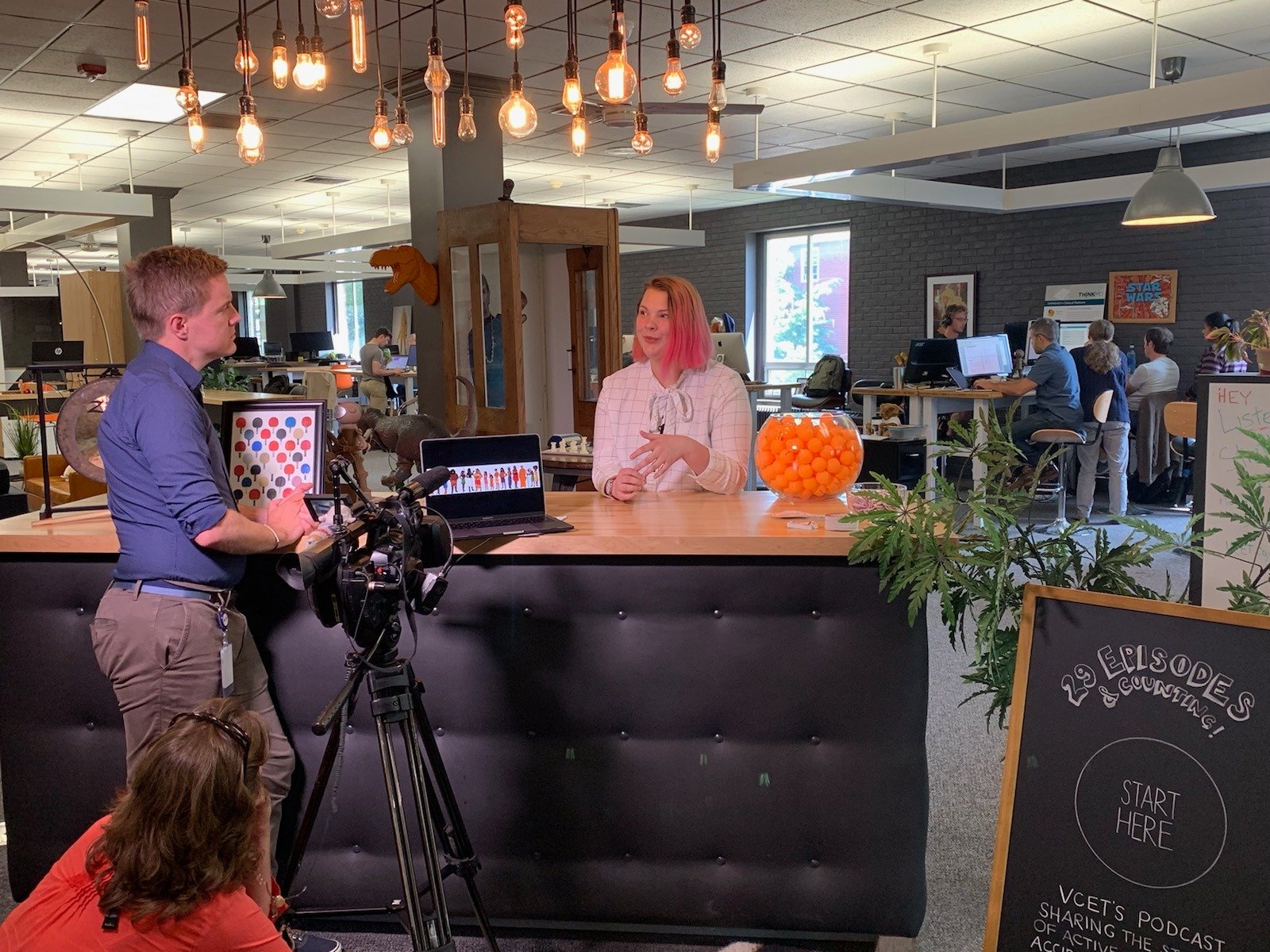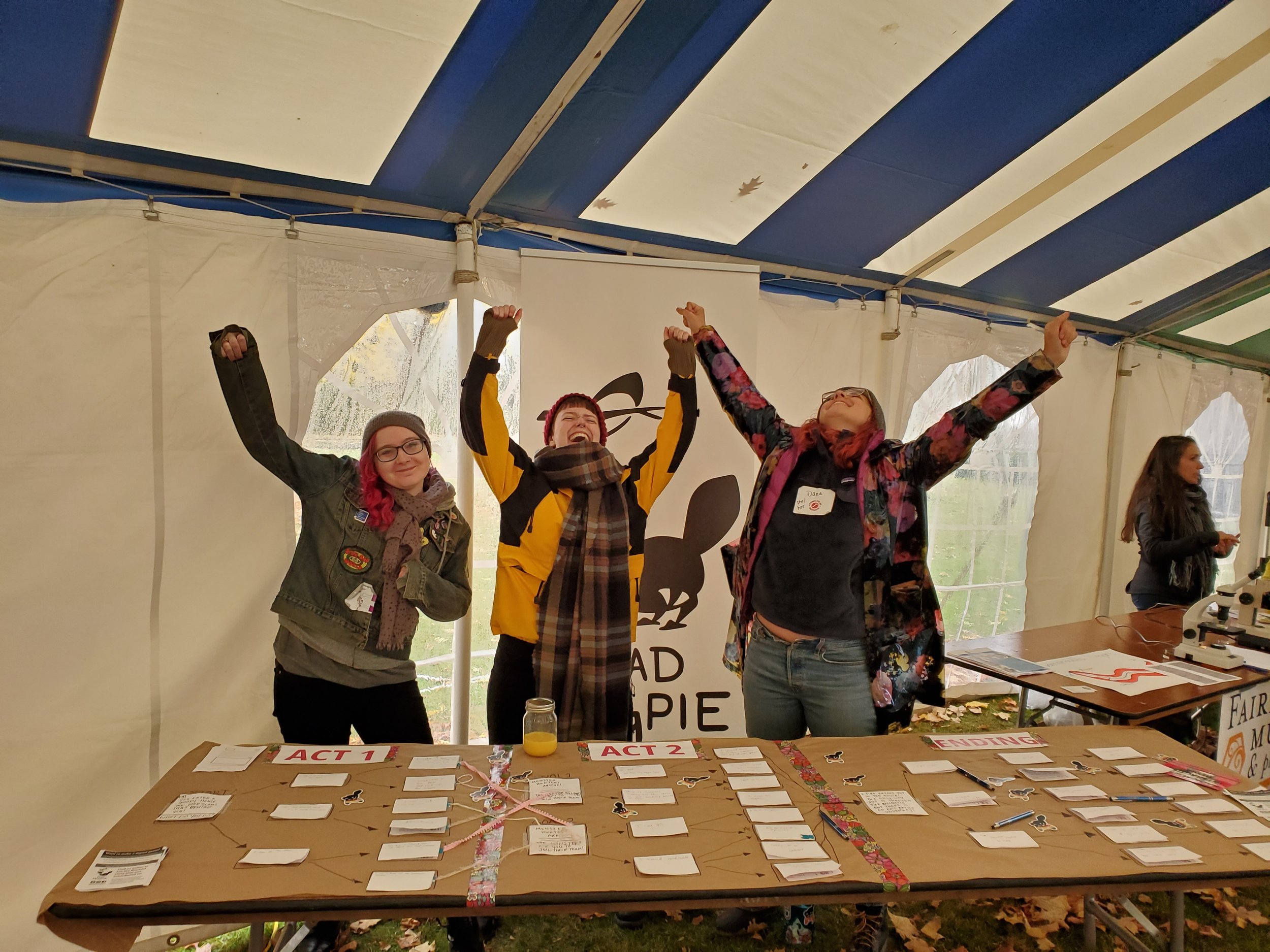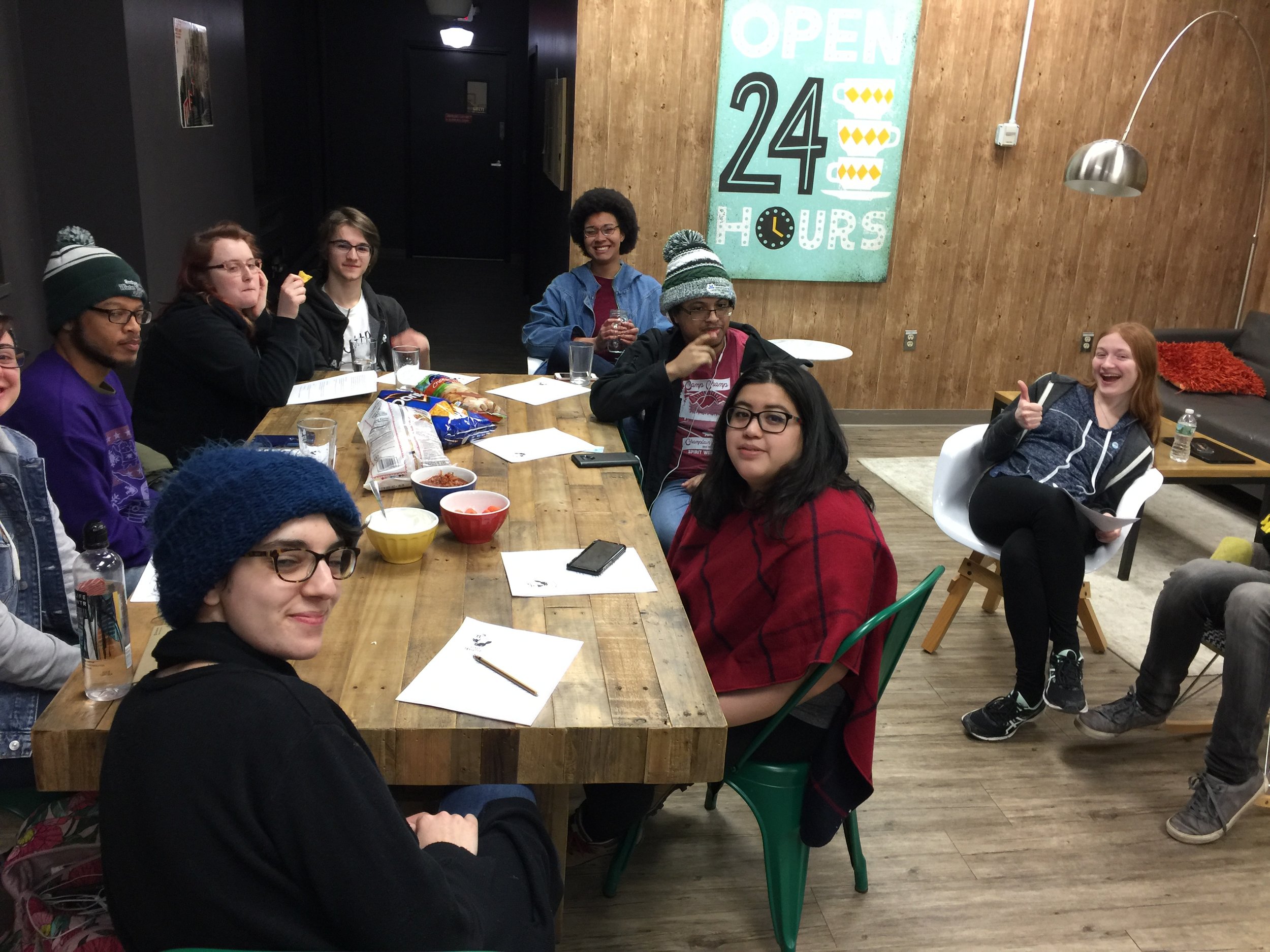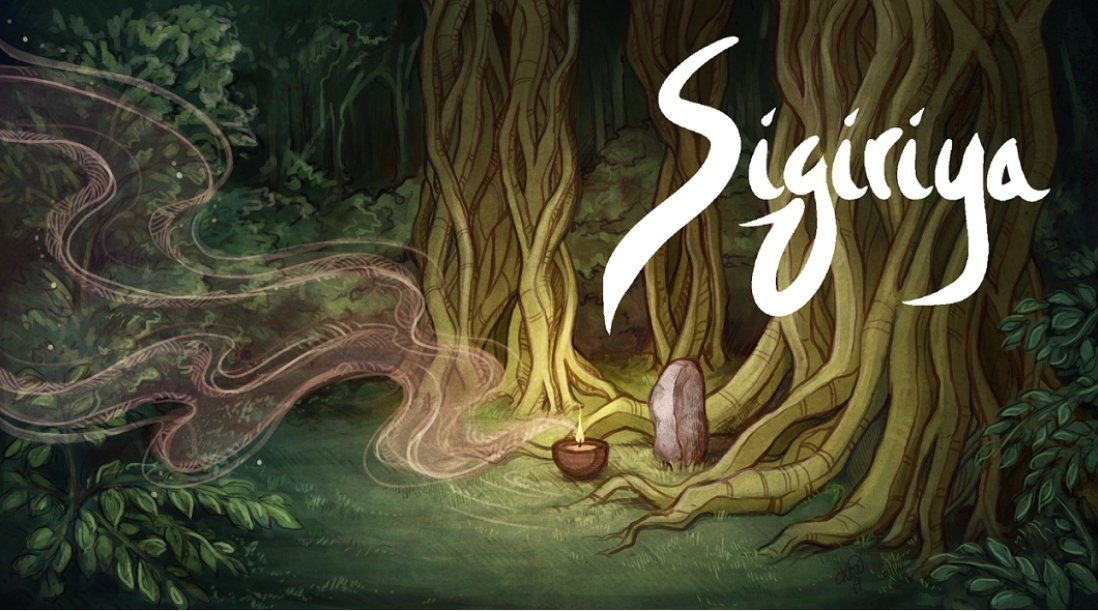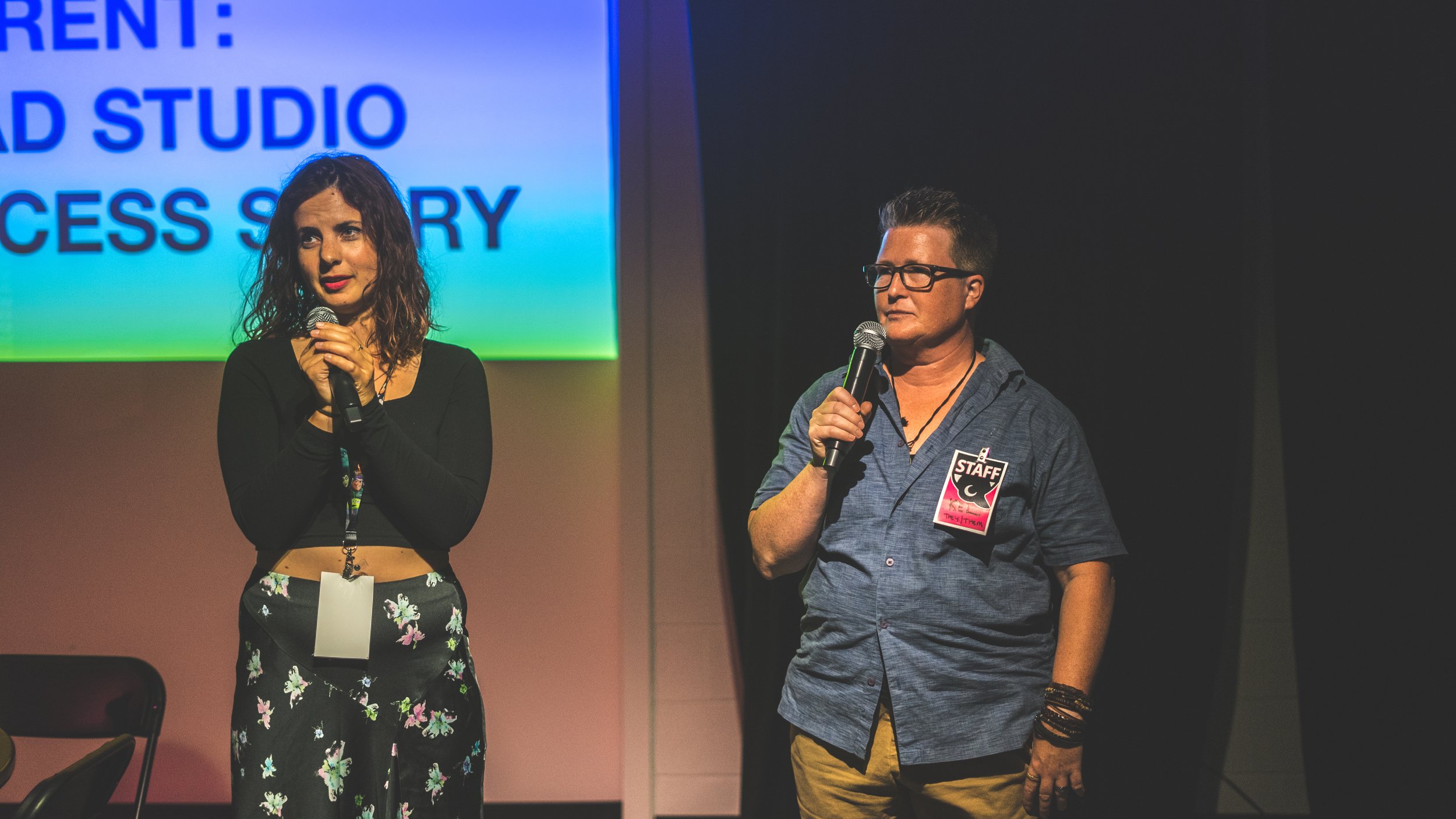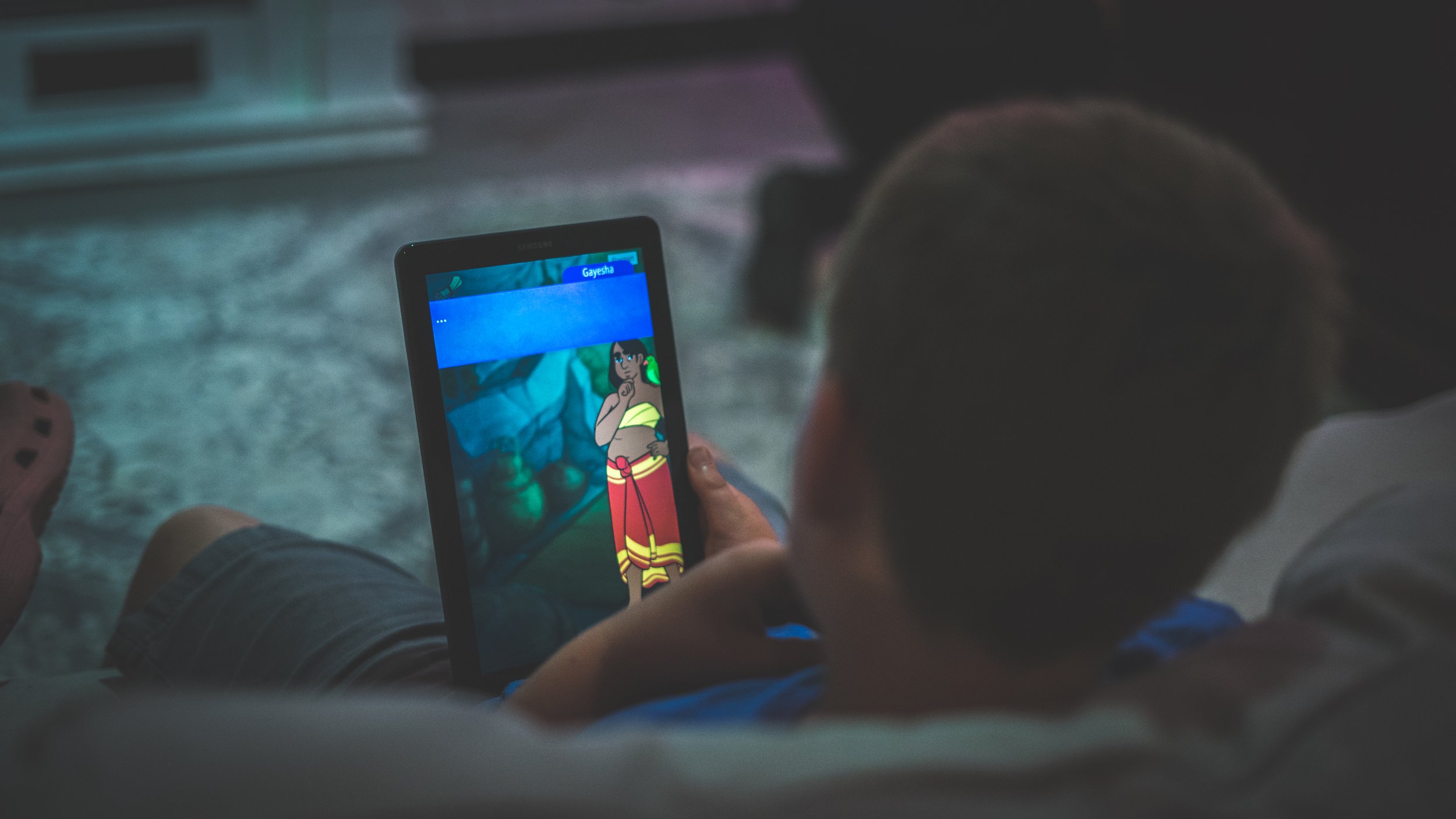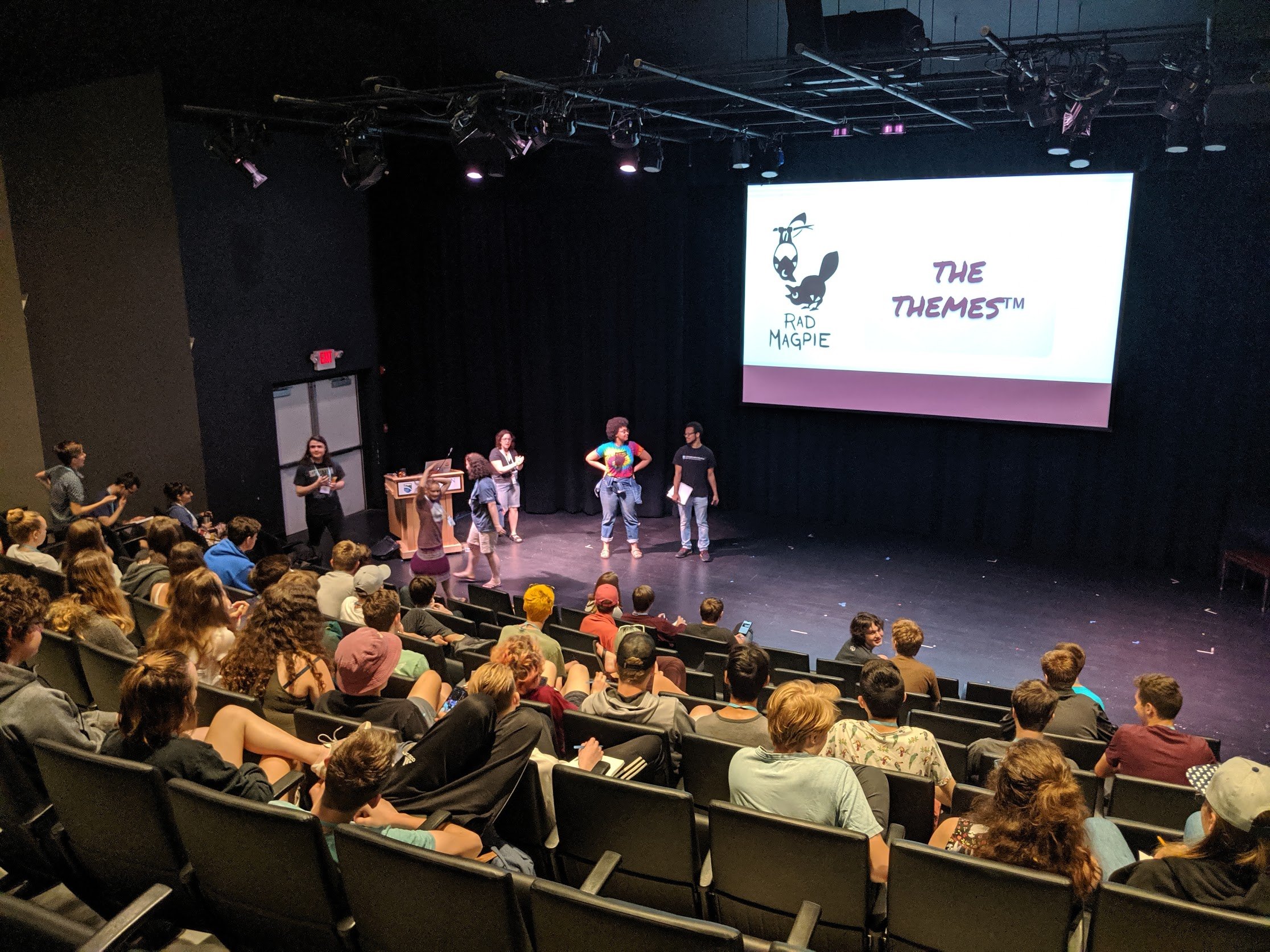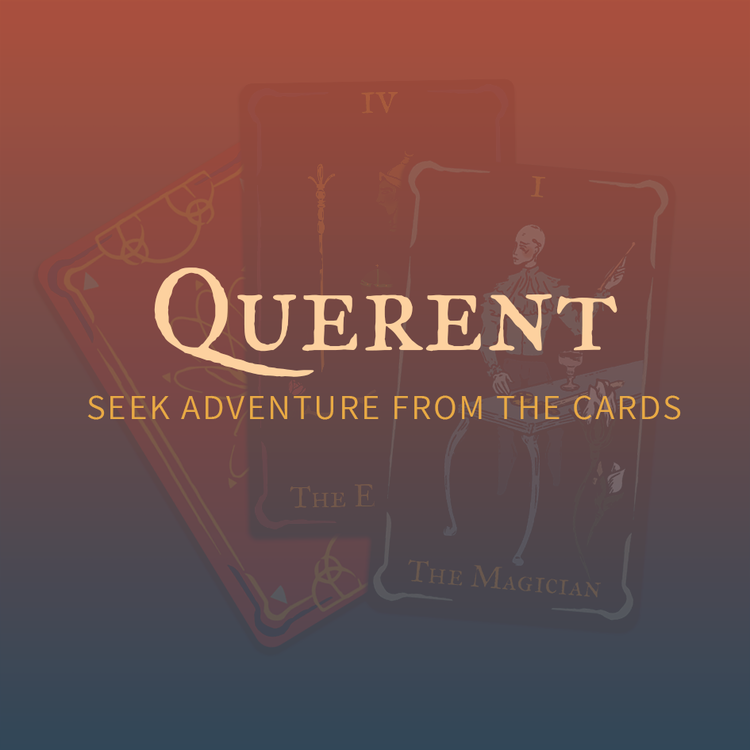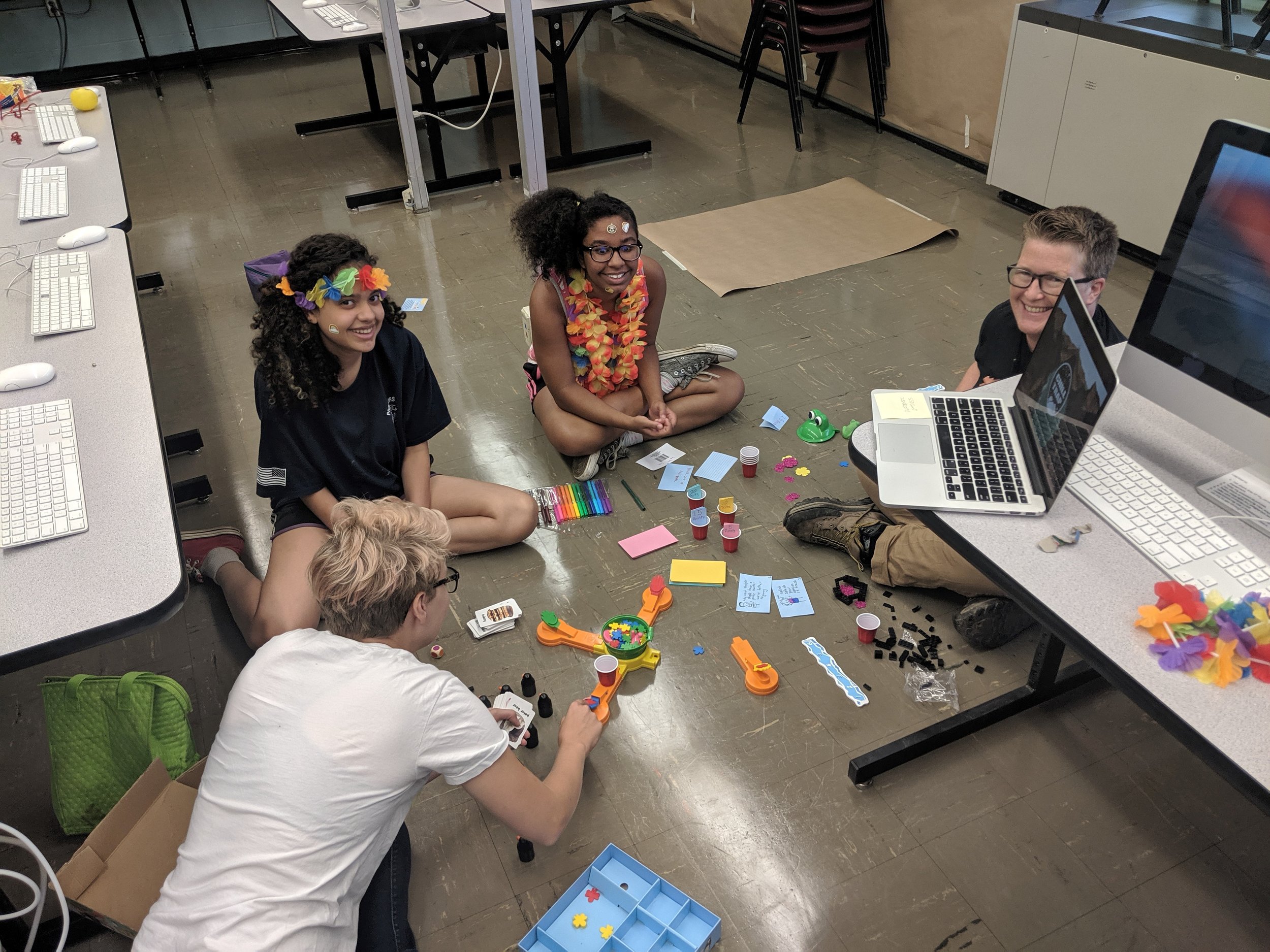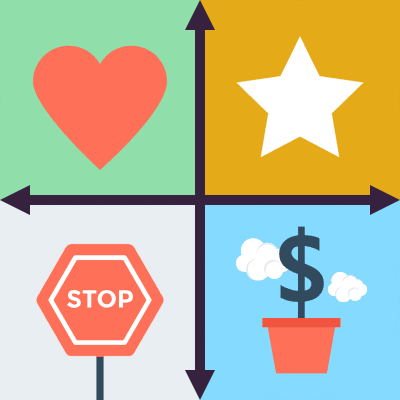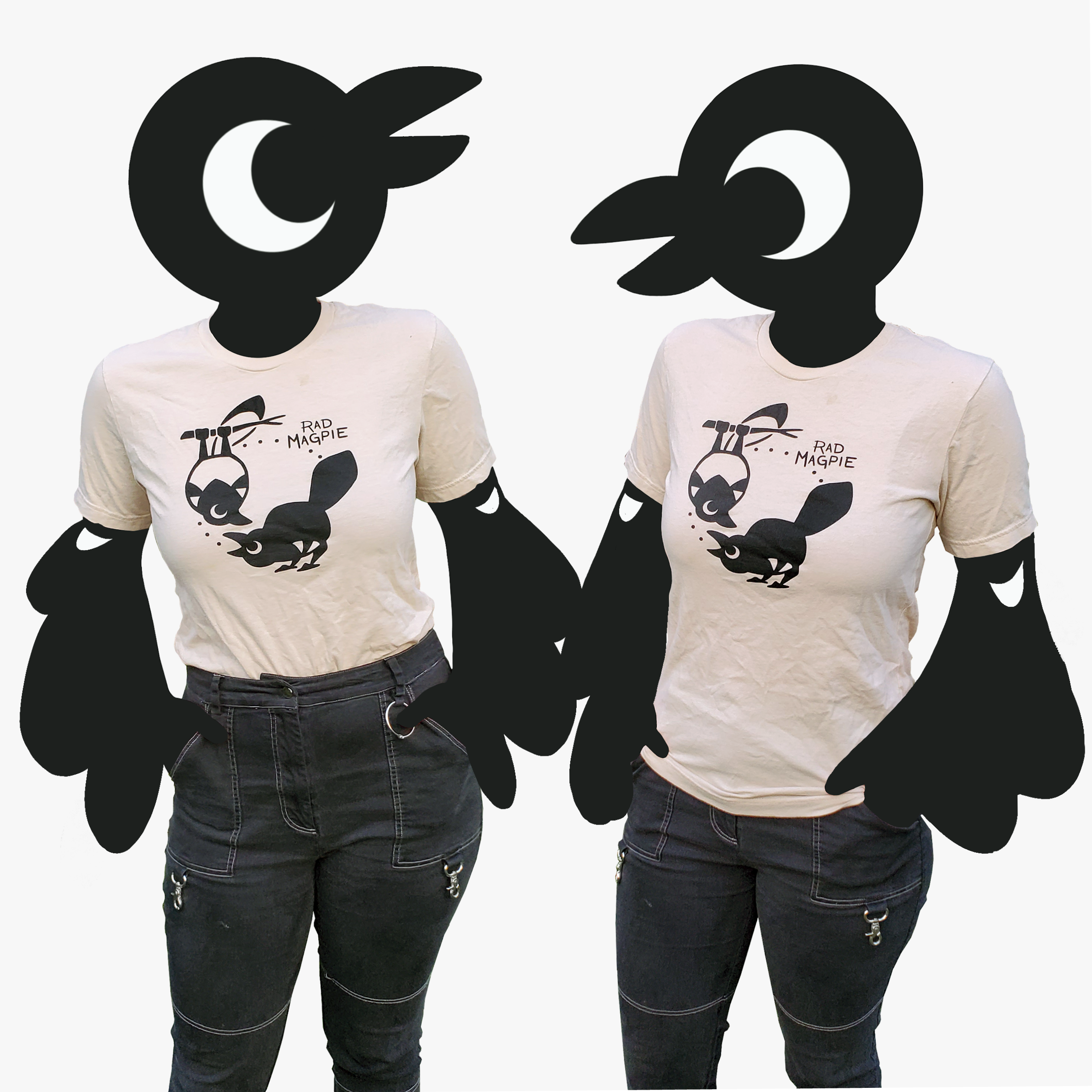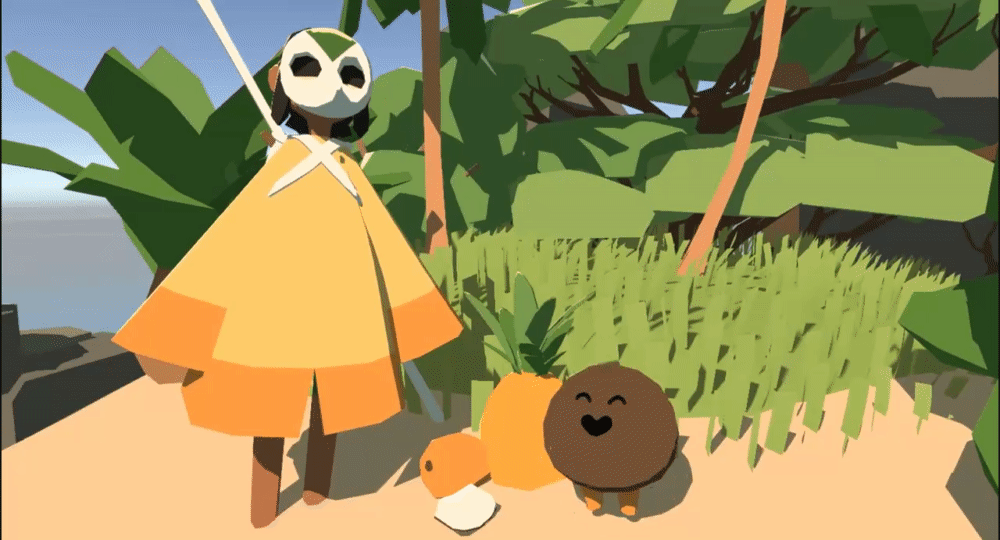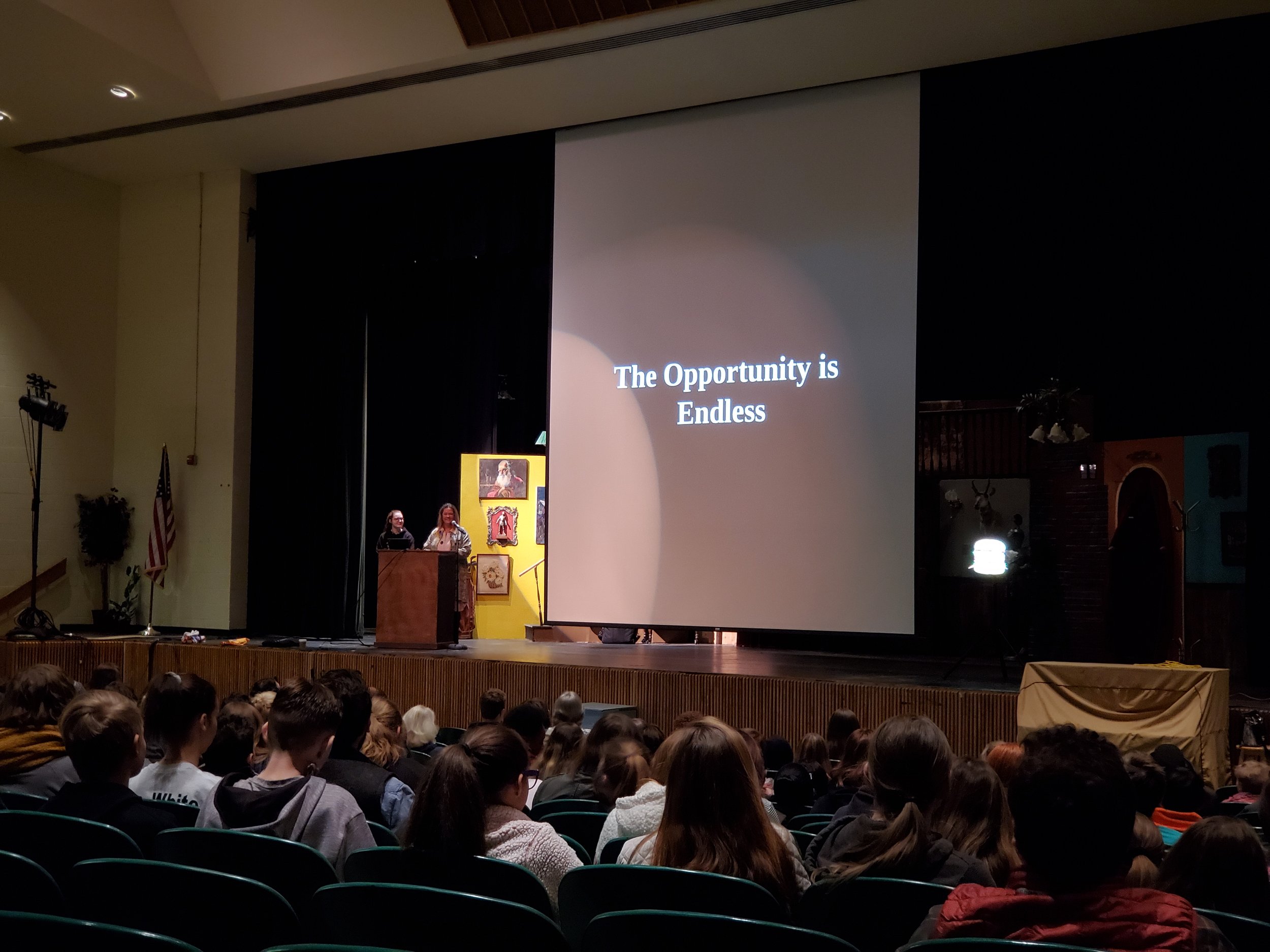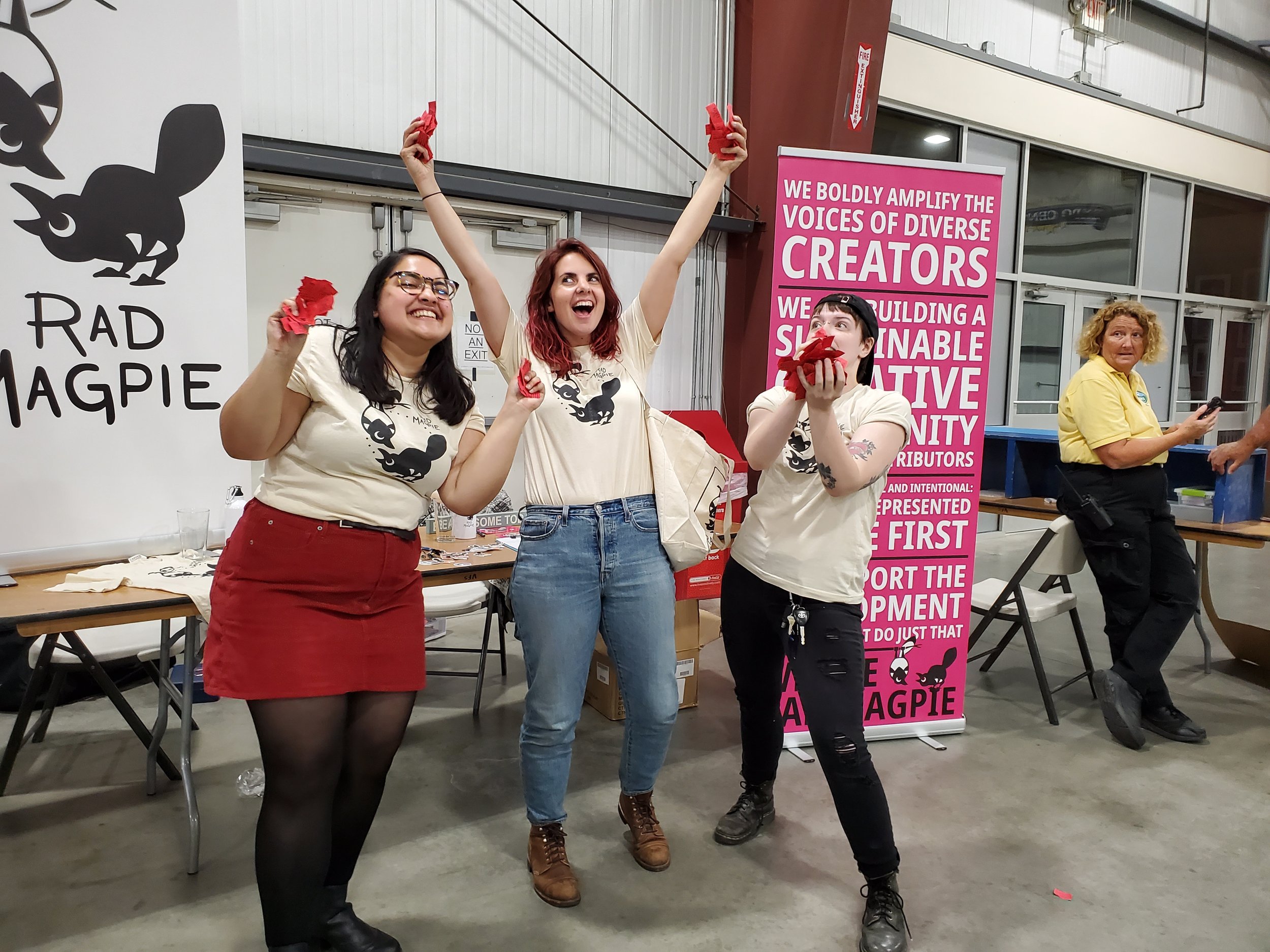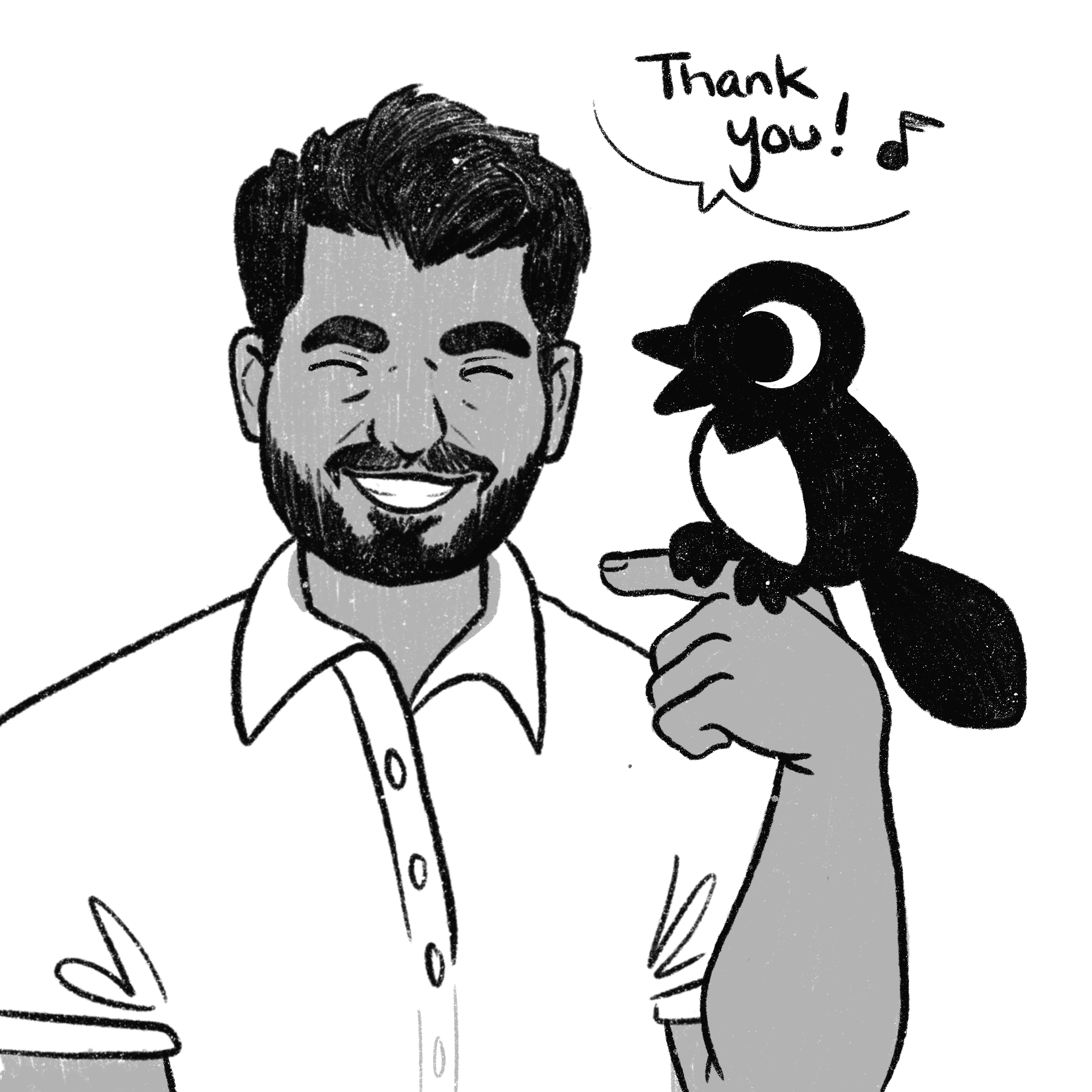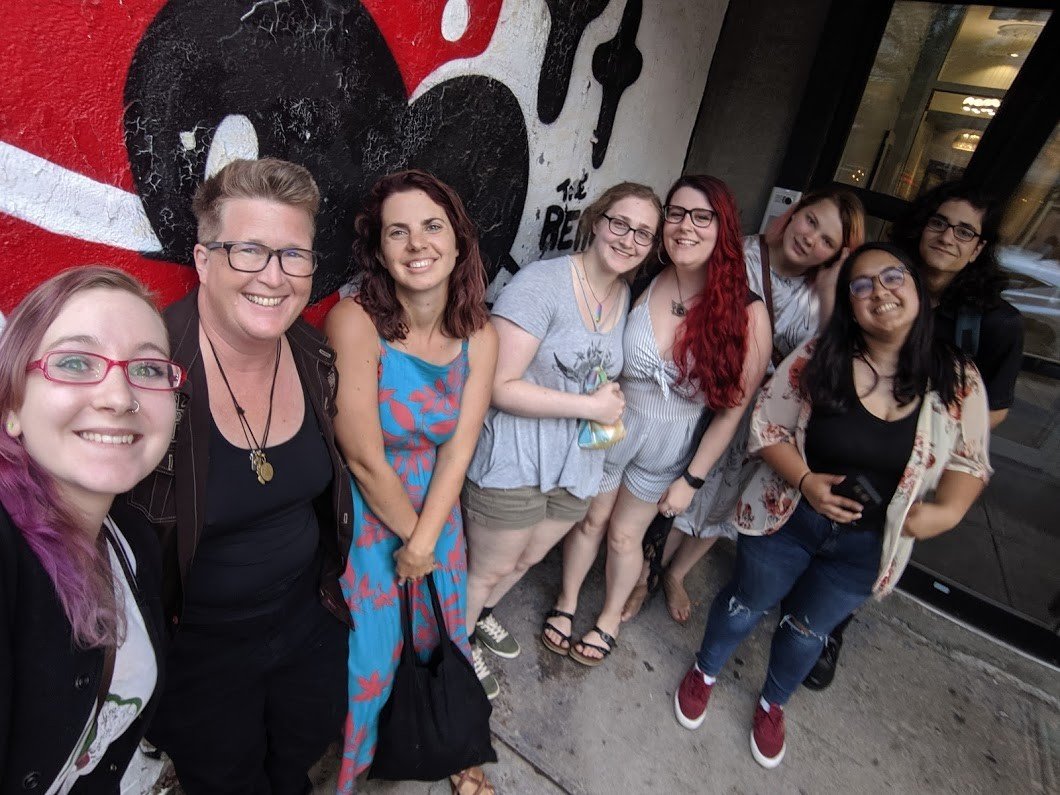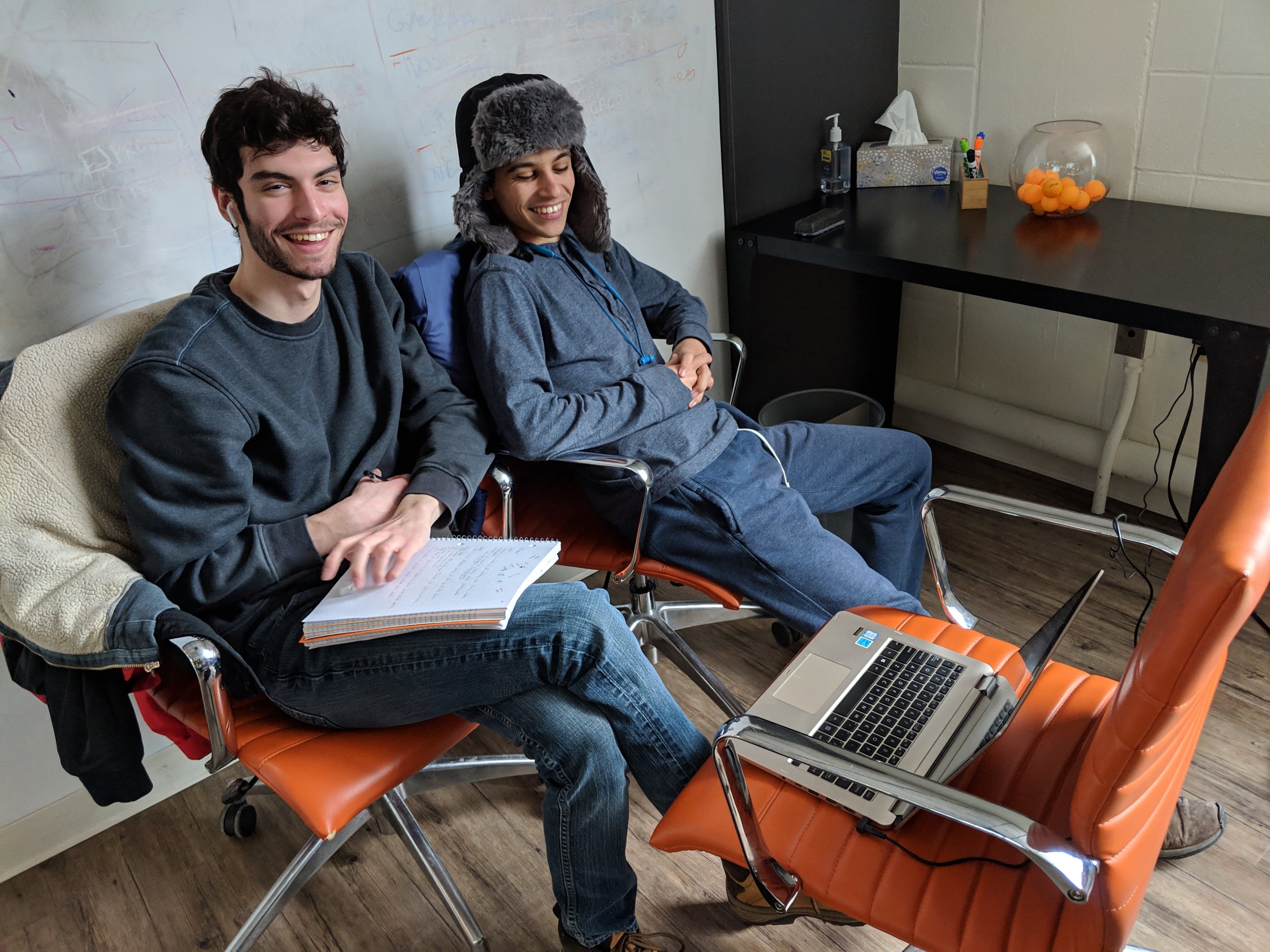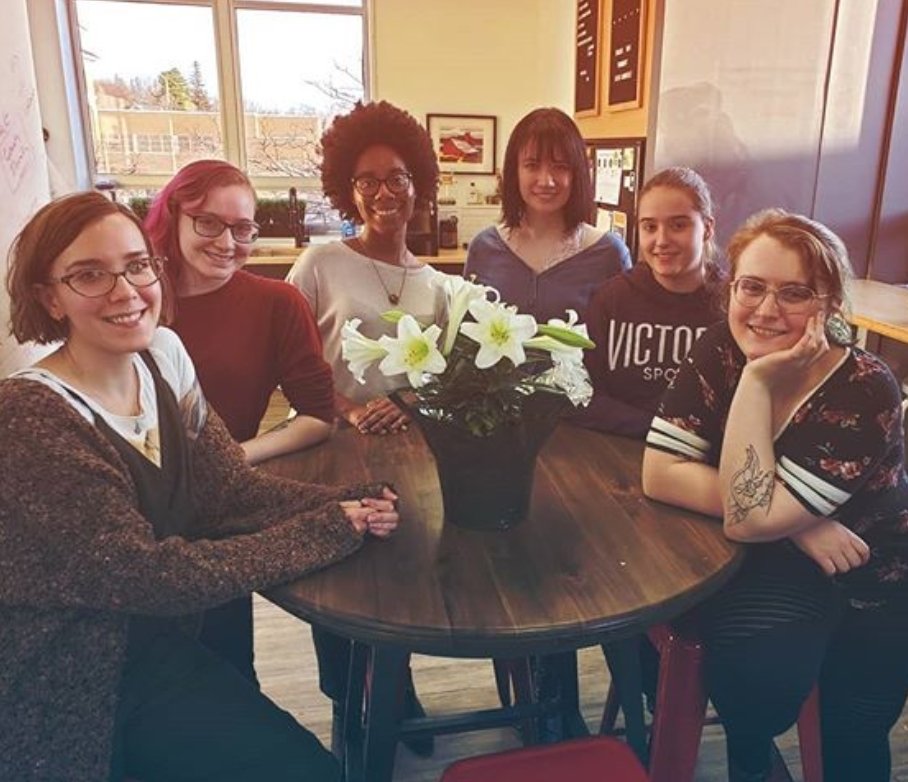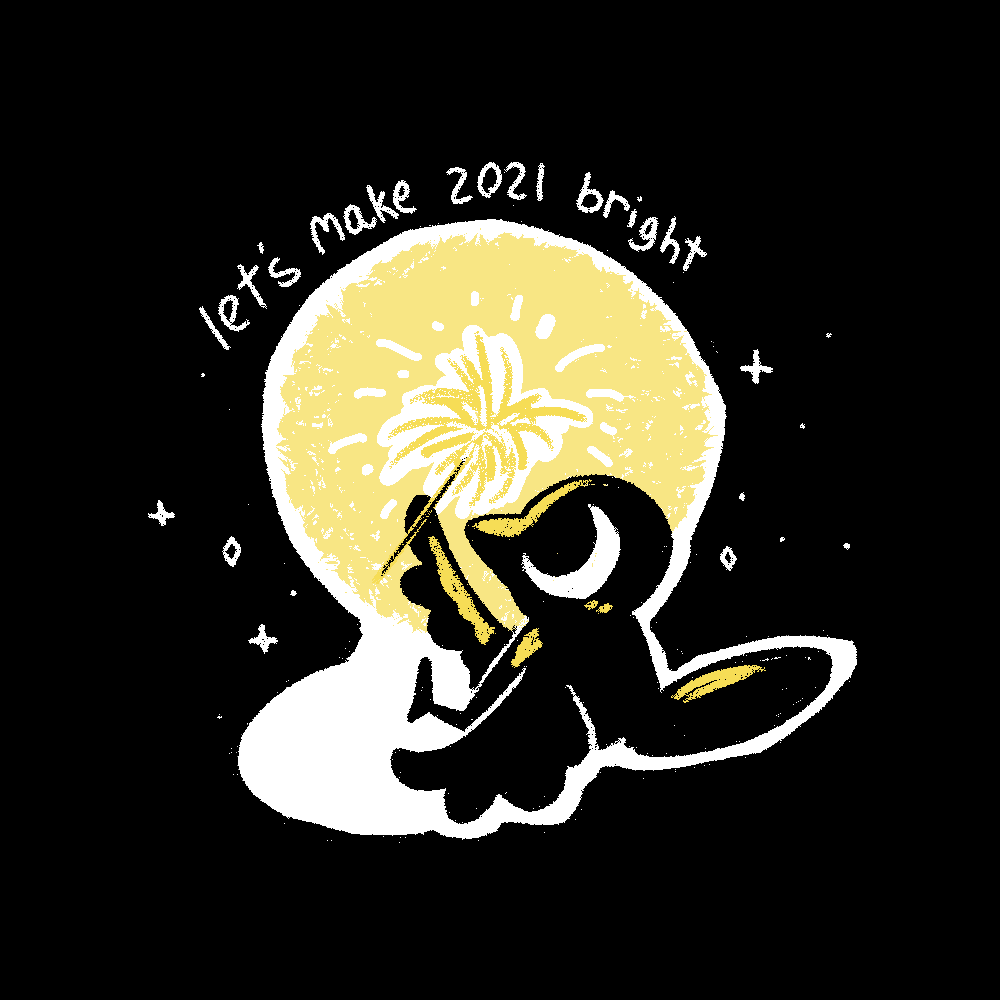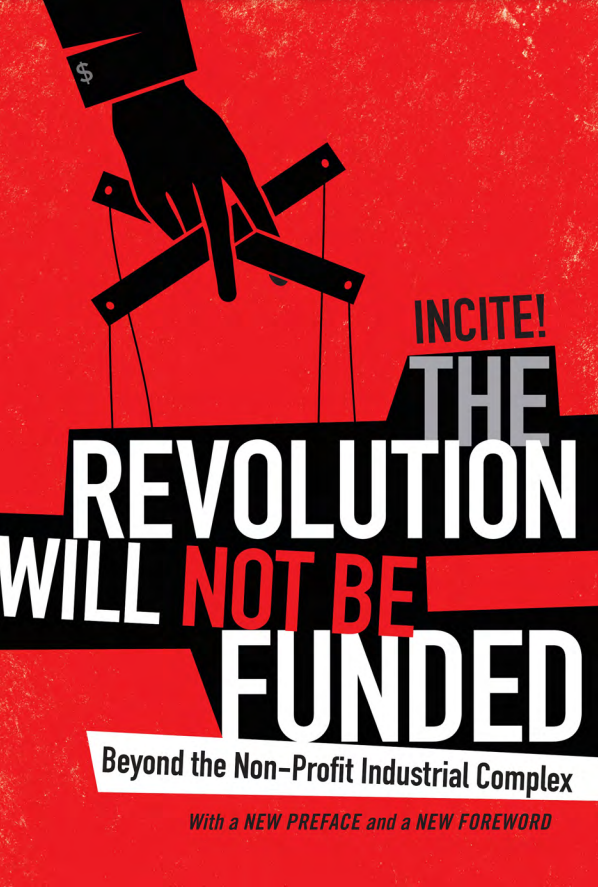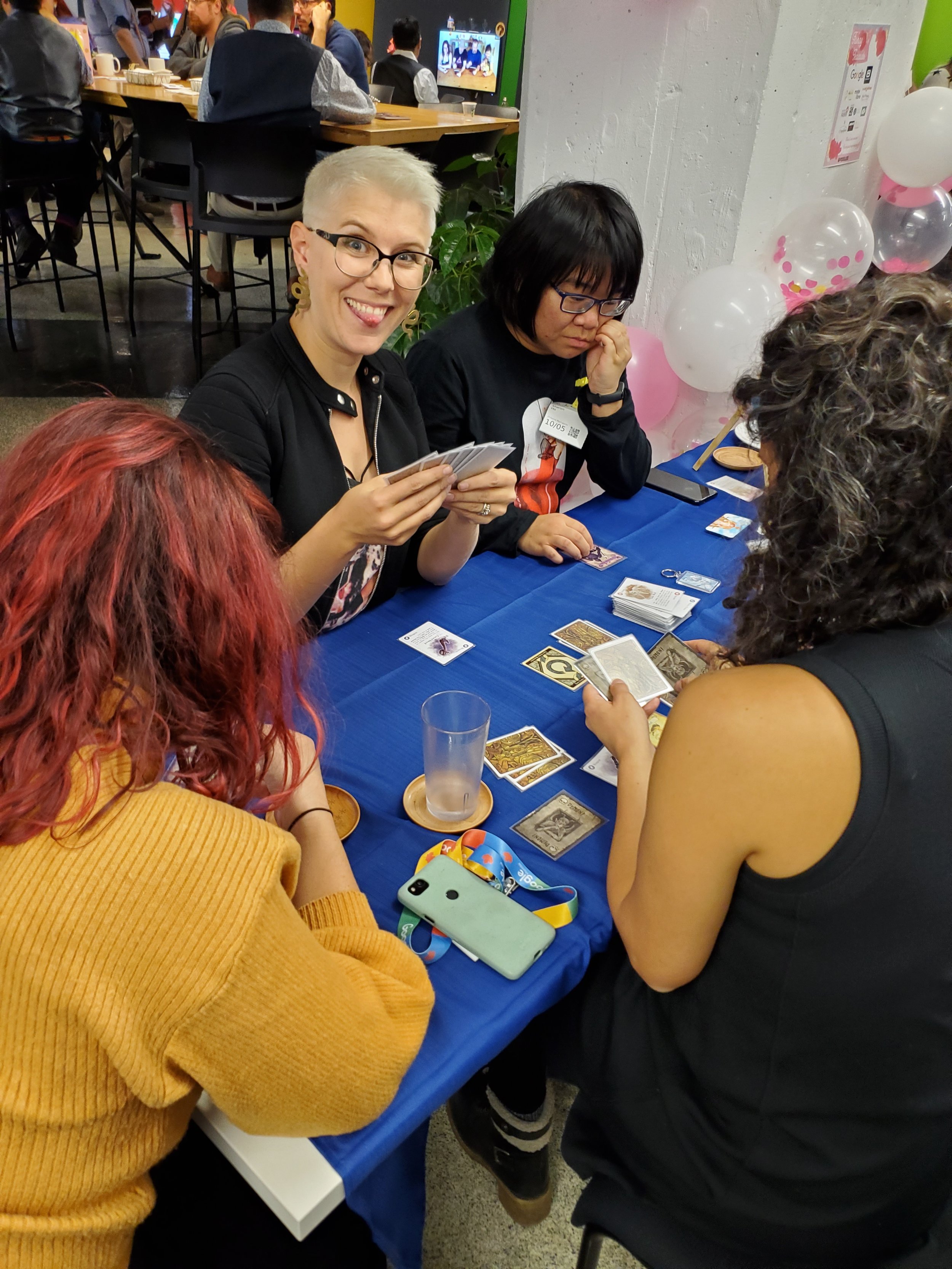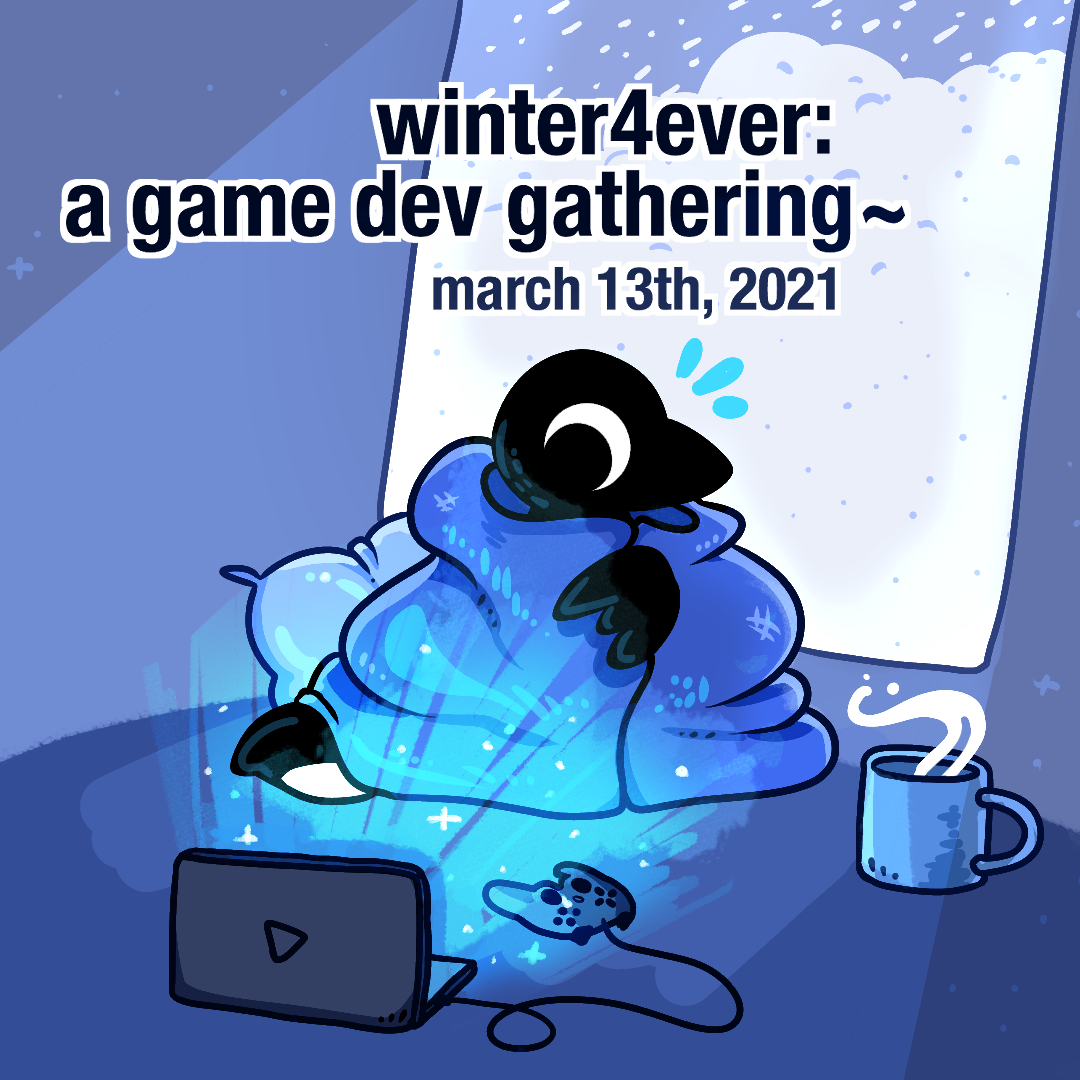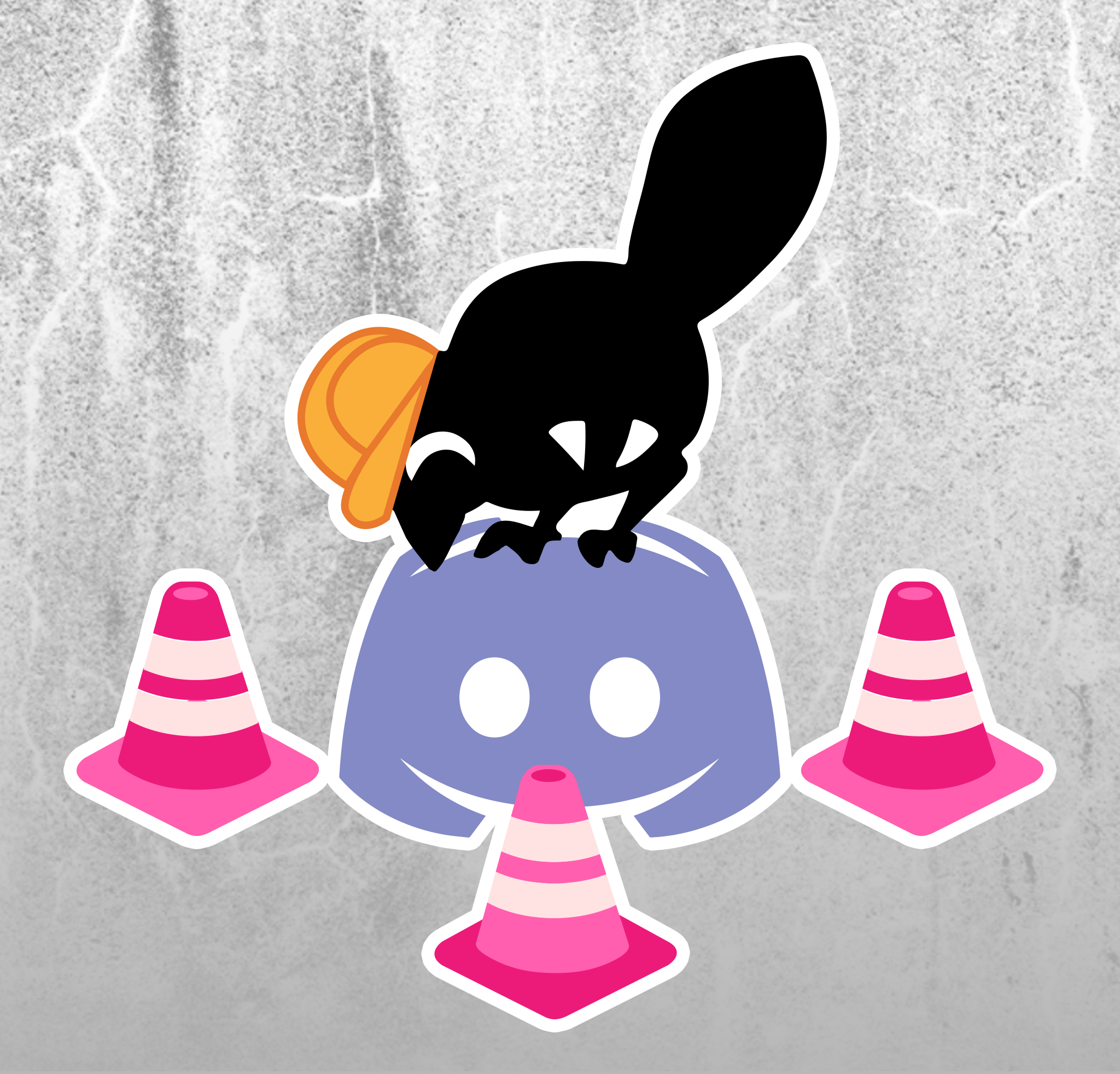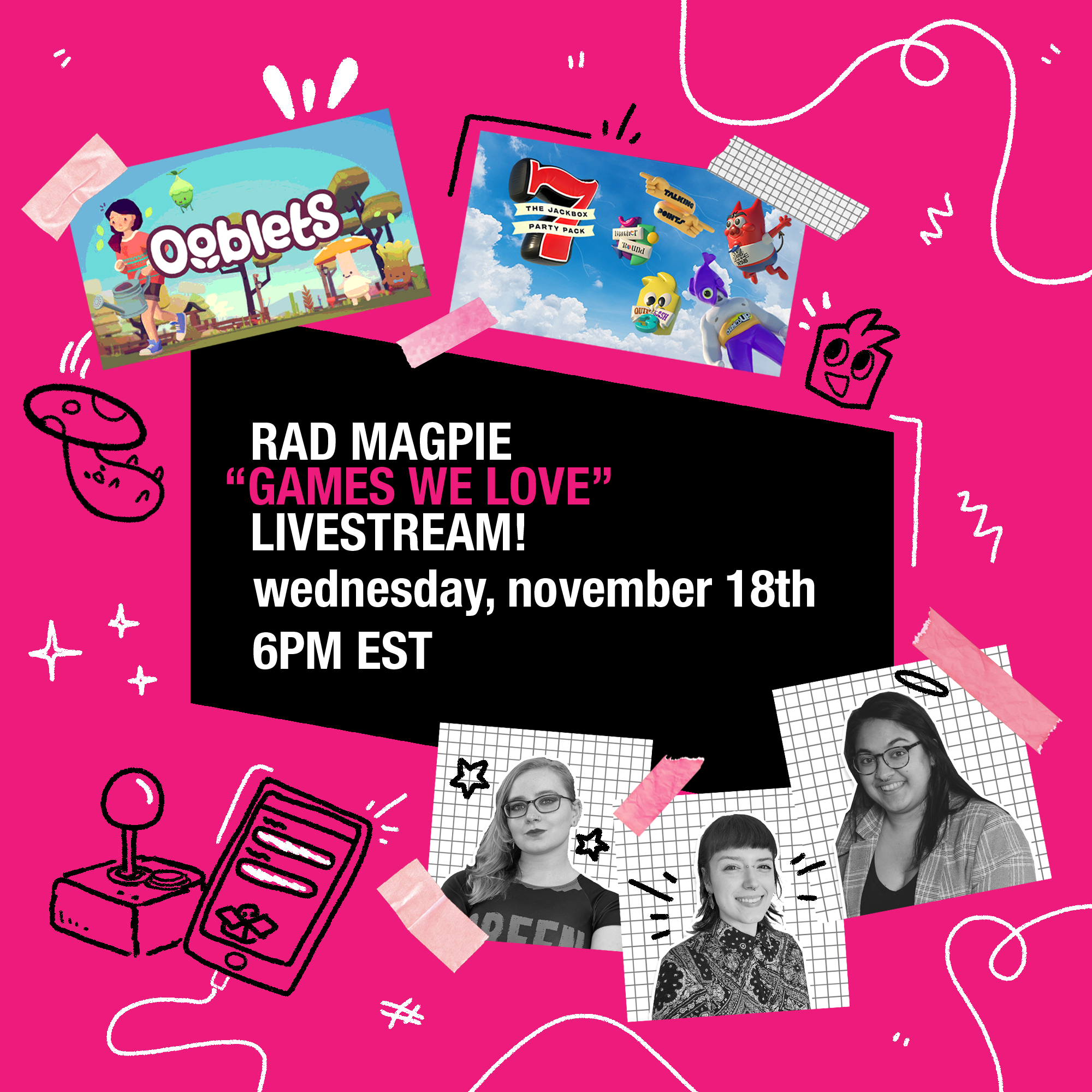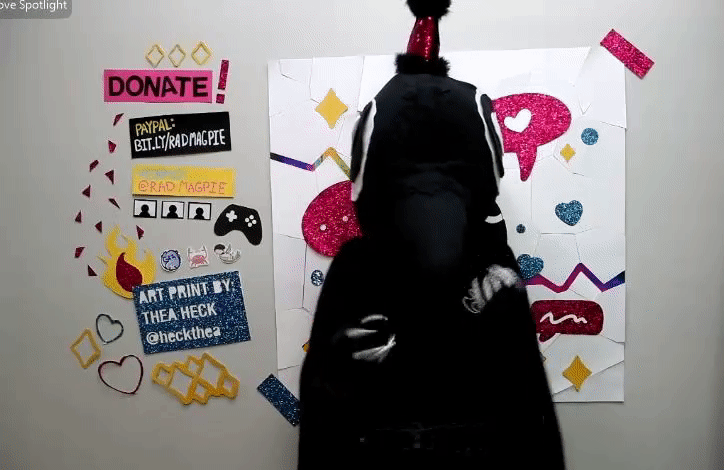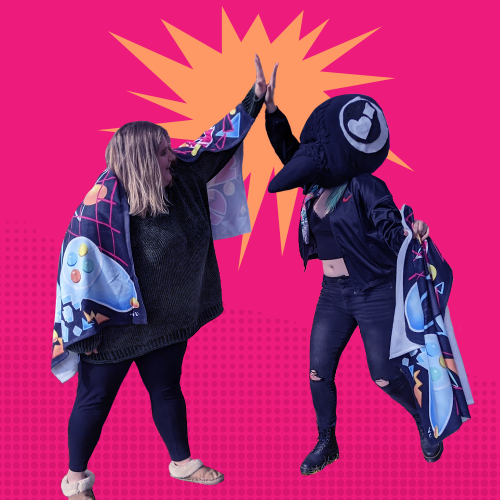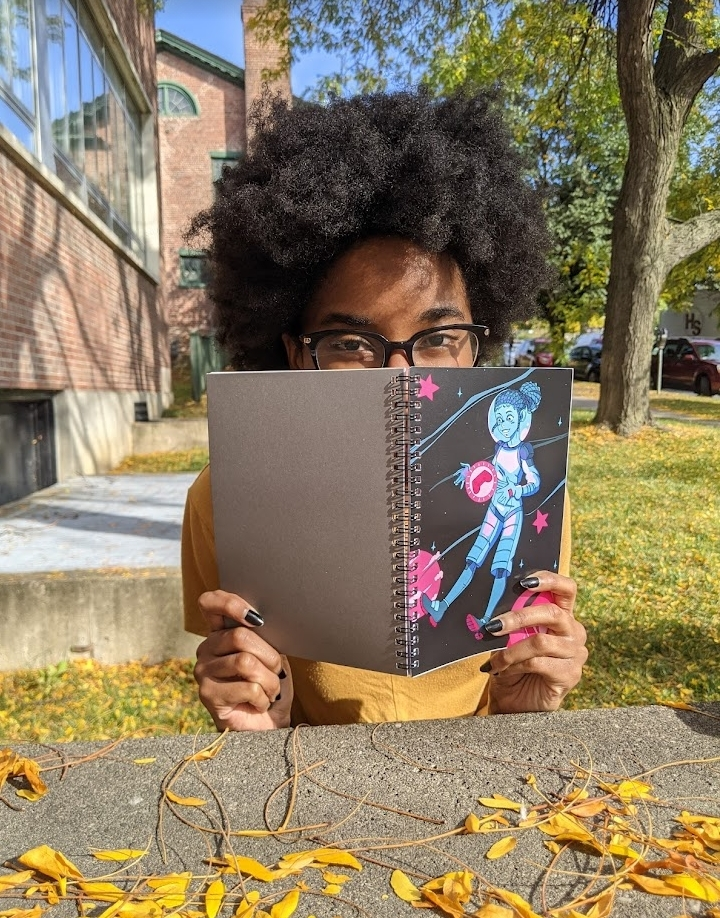History of Rad Magpie
I’ve been thinking today about Theseus’s ship.
“The ship wherein Theseus and the youth of Athens returned from Crete had thirty oars, and was preserved by the Athenians down even to the time of Demetrius Phalereus, for they took away the old planks as they decayed, putting in new and stronger timber in their places, in so much that this ship became a standing example among the philosophers, for the logical question of things that grow; one side holding that the ship remained the same, and the other contending that it was not the same.” — Plutarch, Theseus’s Ship
What is it that makes an organization? Is it the mission, the work, the people? When all of the pieces of an organization have changed, down to the very floorboards, how might we recognize it?
Rad Magpie is the story of such an organization that began with a big question and an explosion of energy, then iterated and evolved every year until it became something that is perhaps now unrecognizable. It is about following a thread to places unknown. It is about excitement, heartbreak, grief, hard decisions, and easy ones. It is about money. Flexible schedules and sleepless nights. Impact in the right and wrong places. It is about failure, success in unexpected places, and reinvention.
The Beginnings
In the beginning, it was a small solution to a big issue. The issue being, of course, the video game industry’s well-documented history of toxicity and diversity problems.
A 2004 self-reported industry survey showed that the games industry workforce was 92% men, and a 2009 survey showed that it was 82% white (it didn’t ask about race in the first survey). The industry has come a long way since then: in 2021, the same study (now called the Developer Satisfaction Survey) found the industry to be comprised of 61% men, 30% women, 8% genderqueer/nonbinary/genderfluid/two-spirit, and 75% white.
The ratios are still not great, and there is ever-mounting evidence of devastating cultural issues, including harassment and discrimination based on sex and race. There are several reasons why this stuff is still happening - Brianna Wu calls it the industry’s “massive ‘sexism debt,’ interest accrued for problems unaddressed for the last 30 years,” or maybe it is the harmful ramifications of lauding industry “auteurs.” We could simplify the problem by saying that changing such a behemoth industry is a lot like trying to turn a cruise ship: gains are slow and hard-earned.
*See the end of this piece for further reading on industry toxicity and diversity problems.
The diversity ratios and some of the same issues with harassment and discrimination also exist at the college academic level. Rad Magpie was a solution to this problem, proposed and kickstarted by Kel Bachus, Assistant Professor of Game Design at Champlain College. In their words:
“When I became a professor at Champlain teaching game design, I saw students taking risks, Kickstarting games, and succeeding. My students of color, my women students, my queer students had a harder time. Why? Because they have enough risk by just existing in this space. I realized what we needed was a place, a studio of our own where the culture supported us and people like us. We needed an environment of safety where we could take risks and be ourselves, with no second-guessing.” —Kel Bachus
And so they began creating just that, a safe space for underrepresented college-aged game developers. A grant of $3000 was enough to get started. They rented a small room in Burlington and invited two diverse student teams to take residence over the summer and make whatever game they wanted. Kel and their friends in the game industry would serve as mentors.
Then 2019 came and changed everything. The catalyst? Money. A lot more of it.
Take Every Half-Baked Idea and Run With It
Money is an expander of potential. It buys resources. But money does not come without a cost. We just didn’t know that yet.
A member of the game development community believed in the spark of this idea and had the money to push it further. With an initial donation of $75,000, Rad Magpie could expand its resources to create more solutions and opportunities for underrepresented developers. Kel began hiring staff to push ideas into reality.
When you have money and endless ideas, what do you do? What about everything? Rad Magpie would repeat Rad Studio, the 2018 program which first inspired its existence, but there were fresh ideas too: a video game, a development summer camp for kids... And plenty of people were willing and excited to join the cause as a collection of like-minded activists and young game developers started to magnetize to this new entity, hungry to do the work and get paid.
So we committed to all of the big ideas. By mid-2019, we’d have 15 full and part-time staff on payroll. We launched five new projects all at the same time, intending for them to be completed in the summer of 2019:
-
A partnership with writer Mary Anne Mohanraj to create a heart-centered fantasy mobile game set in Sri Lanka. Our project aimed to tell the age-old story of Sigiriya - a giant rock in the Sri Lankan rainforest that a usurper king decided to call home (a real, remarkable story!). The gameplay centered on community building in ancient Sri Lanka and featured an entirely Sri Lankan cast of characters. We hired ten students and professionals as developers on the project.
-
This is what we call our first ever “flagship” program, the one that Kel started in 2018. Rad Studio would be a space for marginalized college students to work on their game development ideas throughout a summer within a structure of mentorship and support. We set up a cozy, inviting lab at Generator and reserved conference rooms for official team meetings at VCET. Students regularly checked in with Rad Magpie staff for feedback, and a couple of industry mentors called in with advice.
-
This would later become the pillar that contained all our efforts to make game development accessible to our community by hosting community workshops, guest-teaching at local schools and summer camps, and hosting game jams. In 2019, the goal was to launch day camps for kids to learn to code. We set out to develop curricula, hire staff, iron out logistics, recruit campers and hold the camps within that first summer. Two Champlain students came on to work on this project.
-
A created-on-the-fly program custom-designed to support a few game students who needed the internship experience and could benefit from RM staff support. These interns were split into two groups, one working on fun game development experiments, while the other was taken through a course on self-care and mental health, which we created for this sole purpose.
-
By the end of the year, we’d be posting original content on multiple social media platforms daily.
There was also the enormity of administrative work. We raced to complete the mountains of paperwork needed to secure the 501(c)(3) status that would keep the money coming. I learned bookkeeping, payroll and timesheet management, employee contracts and hiring procedures, and cash flow planning on the fly. We were learning everything as we went. There was energy in the office, entire tables sat with our employees. It was fun. There were ping pong tournaments, an espresso machine, a view of Lake Champlain from the kitchen.
There was also a desperation growing quietly in the background as mountains of responsibility and commitment expanded each day, ominous and warning of a cascade.
Everything didn’t exactly turn out the way that we hoped.
There was no flexibility in our timeline of deliverables. There was so much to be done that we couldn’t afford any time spent on strategy, reflection or redirection. Management got less attention than needed, leaving new employees feeling directionless, and projects swiftly fell behind expectations. Grinding on deliverables was the only option to keep up with the aggressive pace that we had chosen. It was— obviously, now— too much, too fast. We ended up canceling our summer camp for kids over a teary-eyed cup of coffee. Rad Studio was ok, not great, Sigiriya—well, nothing came of it. Barely even a playable build. We couldn’t keep up with our aspirations. We had the best intentions, but it didn’t work.
intervention : Postmortem process
It is easy—really, really easy—to overcommit and then get into the grind of completing objectives. Sometimes taking time to step back and review the big picture feels like a luxury. But holy cow is it vital. It is incredible how easy it is to grind in the wrong direction— or in too many directions! We found that out at the end of 2019 (and a few more times since).
After the results of our initiatives in 2019, we decided to take some time to complete a thorough postmortem process. The term “postmortem” is used in game development to describe a structured reflection following the end of a project wherein all of the team members on the development team take a good, hard look at precisely what was accomplished and how they got there. In the Fall of 2019, we spent two months reviewing the results and processes of our external programs and internal initiatives. Postmortems became an integral part of our project development cycles. At the end of every project, we’d gather reflections, publish an internal report, and present findings and takeaways. This allowed us to directly address our mistakes and learn from them. These learnings led to massive strategy shifts and would continue to guide our actions in the years to come.
In the Fall of 2019, these were the three big takeaways:
-
Imagine this scenario:
You’ve committed to doing a LOT, and suddenly you’ve got a bandwidth issue. You need all of these people to do the work that you’ve committed to. So you hire them, but you really don’t have much time to get them up to speed (bandwidth issue, remember?). So you just pray that they can read your mind and know exactly what you need and want.
Guess what? It doesn’t work like that.
-
Following up with point #1, you need intense management for new people—it takes a ton of time and effort to ensure they are onboarded correctly and know what the organization needs and how they are supposed to contribute to the team. Likewise, put a lot of effort into ensuring you're on the same exact page as any external partners. Write up all agreements and be neurotic about the details. Don’t let anything go unsaid. You’re building relationships that could strengthen or sink your organization. Remember: “when you assume, you make an ass out of you and me.”
-
So simple and so important. Rein it in. It is much better to wow someone and go above and beyond than to promise something you can’t deliver. Be honest and round down.
What we needed more than anything moving forward were specific intentionality and careful judgment. Good - but not specific! - intentions were not enough to make the difference we wanted and led to outcomes that hit the team personally and painfully. The next step was to weigh our options carefully and make reasonable, measured choices.
Think Like a Business and Grow
Reflecting leads to strategizing, so we held our first annual Executive Retreat. A family cabin in the woods of Maine was just right for a long, structured weekend of idea generation and intention setting. We spent the entire weekend harvesting our dreams and weighing their feasibility and potential impacts, making decisions that would determine the whole year to come.
*You can see our first executive retreat schedule here and our meal planning spreadsheet (we were undoubtedly thorough).
Then there was money. We had it, but how would we keep it? How would we get more of it? Four of us were year-round employees, most relying on Rad Magpie for our primary income. Our largest donor was giving us this money for “foundation building,” the idea being that their support would launch us through the startup phase and into something long-lasting. In short: we had an imperative to be financially sustainable.
And so we imagined all of the work and programming we could do to support our constituency, and then we thought… where is the money? Who would give us the money? Are there any foundations that might support us? Or would our constituents be able to pay for some of this programming?
We started reading books on nonprofit financial sustainability and strategic development, full of spreadsheets, matrixes, and staff activities (we were learning everything as we went). I leaned into control, seeking to iron out the unknowns with rafts of data. We made swimlanes and projected our activities out a year in advance. We made a value statement. I went on an apology tour—remember what I said about clear expectations building good relationships? It didn’t always happen that way in 2019. Some relationships were wounded as a result.
The new prerogative was this: treat Rad Magpie like a business.
Until now, Rad Magpie had been run like a (very poorly managed) nonprofit. The (loose) strategy had been to get money from wealthy patrons — with a vague idea of grants being a possibility— to fund the work. Period. There had been no discussions about diversifying income streams or finding programming that would financially support itself. There was no financial sustainability strategy in place at all.
That changed in 2020. We would diversify, we would set income targets and spending limits, and we would weigh potential programs for not only their impact but their ability to bring in money. And, like any good American enterprise, we would grow. We created a 25-page document that broke out income targets for each desired revenue stream while setting goals for growth in every aspect of the organization.
I wrote this on the very first page of that document:
“For 2020 and beyond, we want to continue growing and diversifying funding sources. We want to…
- Grow and cultivate our donor base.
- Create an in-house process of actively pursuing new contracts.
- Increase program fee income for Rad Studio through scaling.
- Do market research into future new programming opportunities.
…Furthermore, we want to continuously improve our financial forecasting capabilities while encouraging the company’s year-to-year growth.”
Seems like a reasonable approach, right? It is absolutely a reasonable approach if, in fact, the goal is, as I wrote:
“We want to create the foundations of financial sustainability so that Rad Magpie can stick around for a long, long time - and keep growing along the way!”
Did you notice that nowhere in those listed goals was mentioned the mission?
A little over a year into the organization's existence, money had suddenly became our #1 imperative, the headline of our focus and initiative. We had wholly embraced the business mindset. Why? The pressure from our donor, yes, the need to meet payroll, yes.
But it was more than that.
We— like any entrepreneurs— desired to launch a lasting institution. A nonprofit which would stick around like the Make a Wish Foundation or the YMCA. When starting something new, isn’t that what we all think we want? If we couldn’t find the money or sustain this idea, it meant that maybe we had done something wrong or hadn’t worked hard enough. Rad Magpie’s vision was meaningful and deserving. If we couldn’t find the money to sustain it, it was because of us: our failure.
This “money first” mindset was neither created in a vacuum nor unique to us.
As we began researching models for growing and sustaining mission-driven nonprofits, we discovered that there has been an external and internal ethos of prioritizing organization building and financial sustainability over all else. Amara H. Pérez of non-profit “Sisters in Action For Power” explains it like this in the book The Revolution will not be Funded:
“Most social justice allies and supporters encouraged us to do exactly what has become standard practice in building community-based organizations. And in many ways, we moved in the very direction that emphasized building an individual organization over relating to a larger movement or shared analysis: securing 501(c)(3) status without questioning issues of sustainability or strategy; pursuing foundation grants to fund staff and program work with little discussion of other options like volunteer staff; and spotlighting the accomplishments of one’s organizing work to seize any opportunity to expand - strategic or not.” (94)
A rich network of people and organizations is doing work to support marginalized video game developers. Yet within Rad Magpie, there was no impetus to begin our own work by researching and exploring our space within that ecosystem. When we did undertake research into contemporary organizations, it was done more as a competitive market analysis than as an opportunity for collaboration. We sought to learn most about the funding model of successful nonprofit organizations: where did they get the money? How do they survive?
Then there was this constant pressure to grow, driven by an unseen, innate capitalist paradigm in which expansion is always the goal. Manifest destiny is built into a capitalist culture's underlying customs and structures. Expansion seemed like a foregone conclusion: when we “stop growing, we start dying.”
So expand we did.
In 2020 we launched an online version of Rad Studio, developed an app in partnership with Allostatech, created a video game for Mika with the Make a Wish Foundation of Vermont, taught a Girls Make Games summer camp in Springfield, Vermont, with the Black River Innovation Campus and Gametheory, and held an over-the-top online fundraising event. Prep work for all of that Summer programming started in the preceding Fall, which meant that - unlike the previous year - we had enough time to manage all of our initiatives properly. We landed new donors and increased our fundraising revenue. Our income streams were diversifying, and our output was growing. This meant that the organization was succeeding—right?
Intervention: The Revolution Will Not Be funded
Rad Magpie had rushed into 2020 with our 25-page stack of goals and the white-hot energy to succeed where 2019 had failed. We did successfully pull a lot off.
Then, two things happened:
1. A global pandemic
2. This book
It was a magical mix of influence and timing which led to the complete reformation of the outlook of every member of the Rad Magpie executive team. We all read The Revolution Will Not Be Funded: Beyond the Non-Profit Industrial Complex, edited by INCITE!, “a network of radical feminists of color organizing to end state violence and violence in our homes and communities.” We learned a truth that hit like a bomb: the nonprofit industry has come to replicate capitalism and would never radically change the structures that underpin injustice in our society. (We go into depth about this concept in a separate blog here.)
“Think like a business” was missing the point. A nonprofit must first and foremost serve its mission.
Not the employees, not growth metrics, not funders. Mission first, not money first. INCITE! goes so far as to argue that a nonprofit should exist only as a bank account for a community-led organization and that that organization should only exist as long as there is a need. Building a nonprofit to last (“for a long, long time”) is anathema to a mission, to solve a problem. We should seek to work ourselves into obsolescence.
Soak this tea, let it steep over months of cultural upheaval, time spent quietly in lockdown. We couldn’t go back. We couldn’t unlearn. And we saw all of our efforts in an entirely new light.
If we were to start all over, what choices would we make?
That’s the thought process we took to 2020’s annual postmortem and executive retreat. It led us to 2021 and our new internal mandates.
Hone In, Practice Abundance
2021 would be different. We would drop the made-up pressure of constant capitalist expansion and striving. We would hone in, learn and embrace where we fit within the larger ecosystem of our mission. Our 2021 strategic planning meeting all centered on one big question:
How are we uniquely poised to contribute to dismantling patriarchal white supremacy in the video game industry?
To answer this question the right way, we had to change up our methods of strategic planning.
This time, we looked inwards and outwards toward the landscape of other social justice organizations working in this field. Organizations worldwide are working to improve the industry for diverse game developers, such as Pixelles, Take This, GameHeads, I Need Diverse Games, Black Girls Code, and Code Coven. We also looked at local organizations focused on marginalized Vermonters, such as Outright Vermont.
We mapped their work in proximity to ours. Our conclusions were that there is decent infrastructure for supporting in-industry developers, and there was more than enough being done about early-age STEM education. As we saw it, the void was the space in between, and it connected directly back to our original raison d’etre: college students.
Then, we turned inwards: what skills and perspective did we bring to this work? Megan, Maggie, and I were all trained game developers that decided to do this rather than get industry jobs. Why?
It turns out that the real inspiration for Rad Magpie was more specific than I had realized—and much more personal.
White supremacy and misogyny are embedded within our college institutions' very systems. All of us who contributed to the foundation of Rad Magpie experienced this personally. College wasn’t a confidence incubator for many of us—it was the opposite. College was a place that reinforced the societal positioning that we had already experienced in other parts of our lives.
Rad Magpie came into existence to support the game development students that we believed were being failed by these institutions. We were remedial: a supplement. We existed to provide the space for those underrepresented students to thrive. But the work went deeper; after our students are empowered by their experiences with Rad Magpie and enter the game industry, they will challenge and change it. And when they alleviate the toxicity of the video game industry, they will change the culture. Evolving the industry is evolving the world.
It became ever more apparent then that Rad Magpie’s calling was Rad Studio. It was our confidence booster and our social justice radicalization program, the most direct line to accomplishing our mission.
We decided to focus on building the foundation of Rad Studio so that it was systematically replicable and staged for growth in the coming years. The goal (which we attained) was to complete a financially sustainable, replicable iteration of Rad Studio by the end of 2021. Then Rad Magpie would turn its attention to expanding our programmatic offerings.
Banking on Rad Studio felt like the clarity and singularity of vision that the Rad Magpie executives had been craving for a long time. Launching Rad Jams, Rad Media, and Rad Studio all at once while simultaneously building up internal processes and learning the ropes of running a nonprofit had been exhilarating on the good days and downright terribly overwhelming on the rest of them. Diving into a single project would feel amazing—or so we thought.
Our new guideposts became:
-
There is this seriously effed-up idea floating around in our cultural zeitgeist that a healthy organization must continually be expanding. Drop that. Instead, focus on how your organization is uniquely poised to contribute and save your energy for just that.
PS. This also means you can say “no” to opportunities in your inbox that aren’t in alignment with your specific goals.
-
This is really a twofer: first, listen to your loyal employees; their hearts will guide the organization in the right direction. And two: actually listen to your constituents! It is painfully easy to make assumptions about solutions to perceived problems.
-
All right, permit me to get a little woo-woo here for a moment (my true nature). I believe that things will work out when we are on the right path. Maybe not in the way we thought they would, but they will. I haven’t always lived by the maxim because it is really easy to get scared— it can be terrifying to create and run a startup nonprofit. There is this intense fear of failure: failing the mission, failing to find enough money to support the livelihoods of actual employees, and failing to live up to our own expectations of ourselves.
Let’s be honest, fear can drive us to do amazing things. I know that because it has fueled me for a long time. But it is a terrible long-term strategy. It is sandpaper to self-worth, gasoline to anxiety, and a one-way ticket to burnout. Plus, it pushes us into this frantic, completion-driven state which drives us to do all kinds of things that are frequently a waste of time. Embracing a mindset of abundance rather than scarcity means taking a leap of faith that even if we do not do all things perfectly, we’ll still be okay.
It… worked?
So, we pulled off our “honing in” objectives; we refocused all of our efforts on Rad Studio, doubling attendance and collecting substantial program fees for the first time in the organization's life. In September 2021, the execs held the Rad Studio program postmortem and brainstormed creative ways of iterating on 2021’s success. Then we rested. As we returned a month later for our company-wide reflection, there was a new bitter taste in our mouths.
Something didn’t feel right. Our hearts were no longer in our flagship program. We had considered Rad Studio the crown jewel of our work, a resounding success story. And yet, for the first time, we started to see the possibility that it wasn’t actually serving our mission. Many students loved Rad Studio and even said that it changed their lives.
However, there were, to us, three insurmountable self-critiques. Rad Studio…
…did not focus enough on social justice education.
…contributed to a culture of overwork that we wanted to steer students away from.
…had a price tag that felt exclusionary and disproportionate to its impact.
Remember: it’s not about making a sustainable organization. It’s about making the impact we were meant to make in a tapestry of work pointed towards our specific mission.
The 2021 Executive Retreat came, and we felt all of this deeply. We also felt exhausted. Maggie, Megan, and I have spent four years with this organization, through good work and bad, the best of intentions, missed payrolls, and decisions made through gritted teeth. We had become completely disillusioned by the nonprofit system, the way money had come to hold so much power over us and our decisions. We still each personally had a sustained, intense passion for our mission, but the means no longer matched the motive.
How do we know when to keep going? When to stop? How do we quell the grief, heartbreak, and guilt if we want to get off the ride?
It was time for a drastic change.
Transformation
And so, hello! Here we are on the precipice of something new and completely, totally different. After four years of effort, we are removing the intentions of nonprofit building and financial sustainability from our to-do lists. We are kicking money off its pedestal and demanding that its allure no longer dictate our actions.
How are we going to do that?
To start, Rad Magpie will be transitioning to a board- and volunteer-led organization over the first eight months of 2022. As of August 2022, the execs will be moving away from our paid roles and to the board in a part-time volunteer capacity. The focus will shift from direct teaching and mentorship to community building and online resource development. This means that we will:
… work more closely with the game development community locally and at large to create events and build solidarity.
… grow Rad Magpie’s board and the volunteer base.
… develop a comprehensive set of free online resources to evolve the video game industry, from mid-career developers to college students and faculty, to studio heads.
… shift our attention from paywalled education towards getting the community involved in our mission on a larger scale.
Rad Magpie leadership will be shifting too. For me, that means following my passion for teaching to the very institutions we have been critiquing. In terms of cost per impact, I realized that I can reach exponentially more students by teaching within higher education than we ever could through Rad Studio. Regardless of where Maggie, Megan, and I find our next paycheck, our commitment to this mission isn’t changing; it is woven into our very fabric.
So far, in 2022, we have dived into our new prerogatives, working hard on our resource library and hosting the second annual Winter4ever. We’re playing a lot by ear. It is not a perfect system, and we don’t have all the answers. But none of this is perfect, and we’ve never had all of the answers.
We expanded outward like fireworks. We built ourselves into a business. We became radicalized and honed in. Now we are attempting a new system. We’ll keep iterating; keep following that thread to places unknown. And we’ll keep you updated.
This blog was written by Dana Steinhoff with editing support by Robin Perlah, Megan McAvoy, and Maggie DeCapua.
SOME FURTHER READING
Toxicity, Sexism, and Abuse in Game Studios
“#1reasonwhy: the hashtag that exposed games industry sexism.”
Exposé of sexual harassment and gender discrimination at Riot Games.
Activision-Blizzard sexual harassment class action lawsuit.
People Make Games: “Investigating Three Indie Superstars Accused of Emotional Abuse.”
Diversity (or the lack thereof) in the Games Industry:
IGDA developer surveys, years 2014-2021, 2004+.
Jamal Michel: “Black game developers: Diversity push is lots of talk, little progress.”
Representation in Games:
Tropes vs. Women in Games: A video series that “aims to examine limiting, sexist patterns associated with female representations in games, and to illuminate how these patterns reinforce and perpetuate harmful attitudes about women in our culture.”
Gamergate:
Brianna Wu: “A moment that changed me – Gamergate.”
Sean Illing: “The woman at the center of #Gamergate gives zero fucks about her haters.” An interview with Zoë Quinn about her experience with Gamergate.








